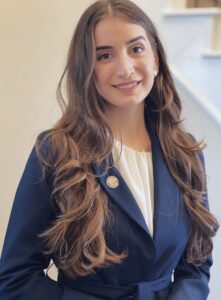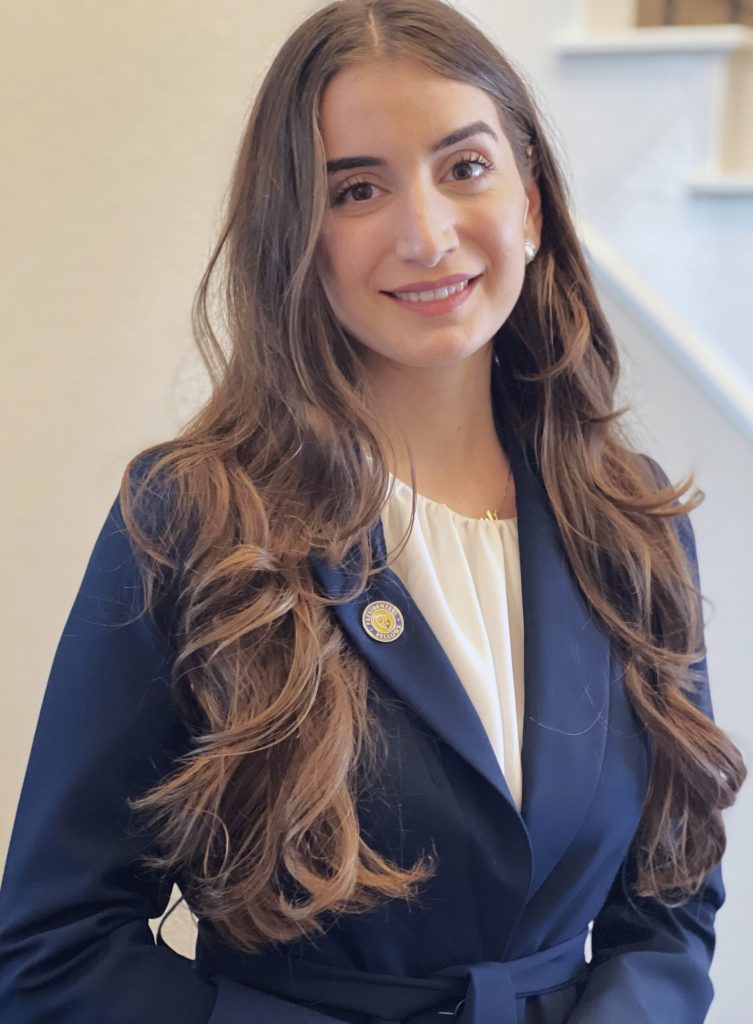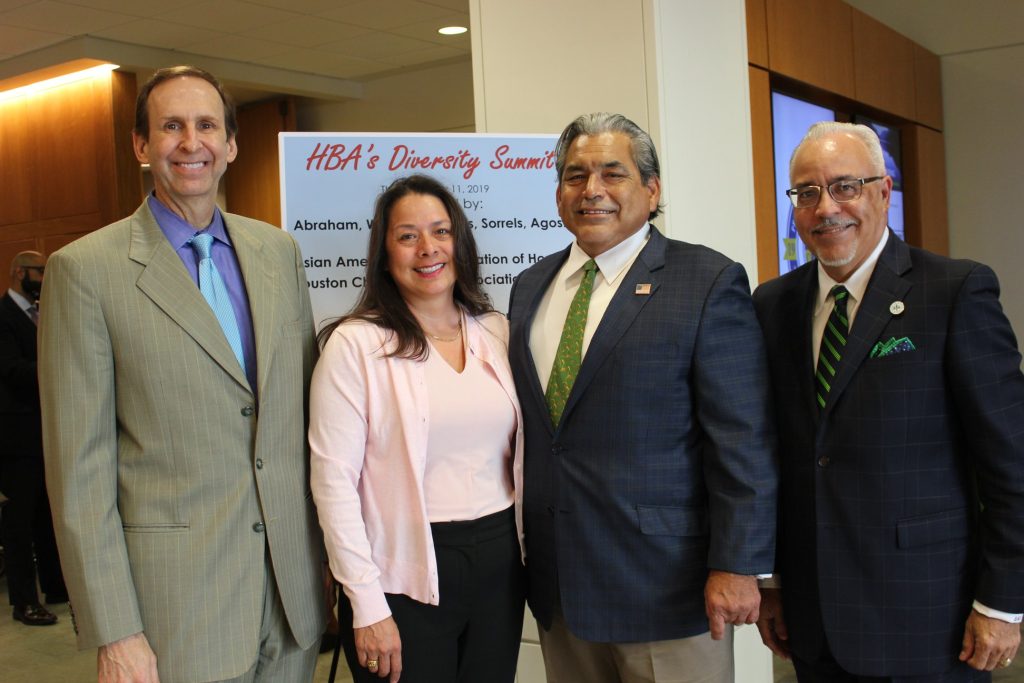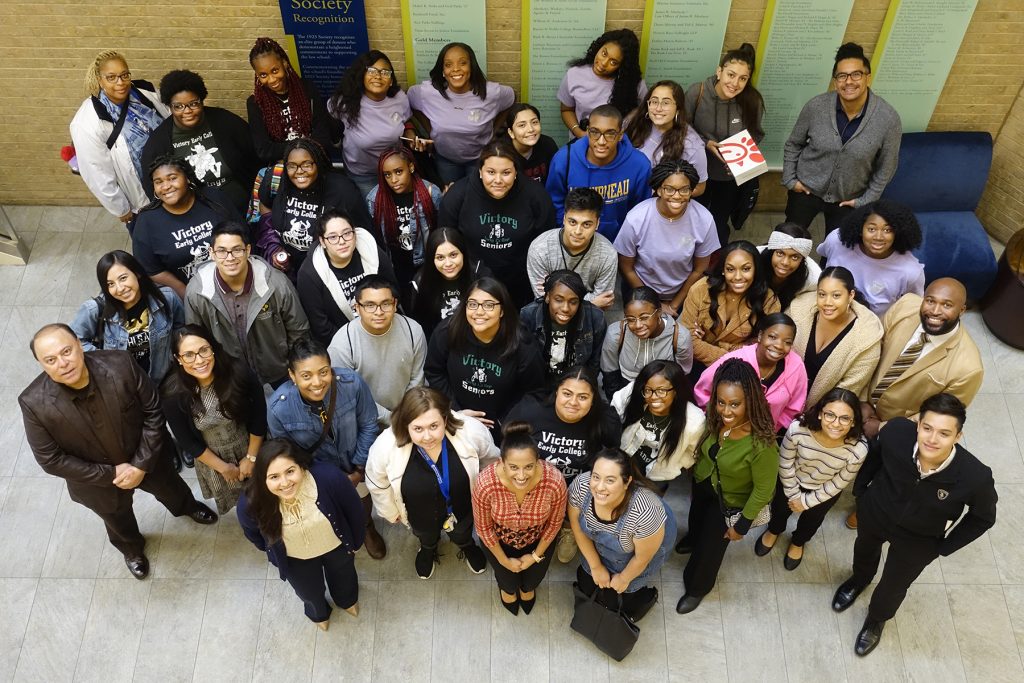 I am a 2L here at South Texas College of Law Houston, and I’m expecting to graduate in May 2023. During my time here, I’ve been active with the Student Bar Association, Phi Delta Phi, CURRENTS: Journal of International Economic Law and the mentorship program.
I am a 2L here at South Texas College of Law Houston, and I’m expecting to graduate in May 2023. During my time here, I’ve been active with the Student Bar Association, Phi Delta Phi, CURRENTS: Journal of International Economic Law and the mentorship program.
I was born in Dhahran, Saudi Arabia. I completed my undergraduate studies at the University of Houston, where I earned a Bachelor of Science degree in psychology with a minor in law, values and policy.
Why did you choose to attend law school – and particularly, why South Texas College of Law Houston?
Law has always been a profession I’ve admired. Initially, I was on an engineering path, but I felt confined to mathematical equations and longed for arguments that lied amidst the gray area. I found myself unhappy but afraid to commit to something that intimidated me, frightened me and would ultimately challenge me more than anything I had faced. However, with the understanding that law school would give me with the opportunity to lead, grow and help others, I decided to take on the challenge. Driven by ambition and determined to be successful, I knew law school would allow me an opportunity to excel.
When deciding on what law school to attend, diversity was an essential element. Considering my diverse background and upbringing, I understand the importance of having a multicultural environment, especially when debating the law. I admired South Texas College of Law Houston’s dedication to diversity and was quickly made aware of the unwavering network of alumni. I admire the community at STCL Houston, and I have built strong friendships and lifelong connections during these past two years.
What is your vision for your role as incoming president of the Student Bar Association?
As president, I want to create an environment where we can support one another… an environment where any member of the SBA board is seen as approachable and eager to help. SBA is a social organization — one I am eager to help grow. I hope to use my position to help others as well as create a forum where students feel supported, united and driven. I strive to create opportunities for students to network, form lasting friendships, and be a part of a community that encourages and looks out for one another.
What achievements/activities are you most proud of during your time at South Texas and why?
Beginning law school during unprecedented times has greatly challenged my work ethic and shifted my entire approach. These difficult, isolating times have further engrained within me an appreciation for circumstantial adaptation and allowed me to enhance effective problem-solving skills. The pandemic required me to analyze situations, identify opportunities and push toward new and innovative ways to accomplish my coursework goals. I am proud of many of my accomplishments during my first year, including being recognized a Presidential Fellow.
Another highlight during my time at South Texas was being elected president of the Student Bar Association. SBA has had a huge impact on my law school experience. I was selected as a 1L representative during my first year, elected as mid-law senator during my second year, and now I’m serving as president-elect. I consider my involvement in SBA to be an accomplishment and an honor of the highest regard. In addition, becoming a staff editor for CURRENTS: Journal of International Economic Law increased my understanding of refined writing and filled me with a sense of pride and fulfillment. During my last year of law school, I plan to stay involved in activities and build on these accomplishments while supporting my peers.
How does having a diverse student population enhance the legal education at South Texas?
Having a diverse student population enhances the legal education at South Texas as it encourages the exchange of varying perspectives and contributes to the marketplace of ideas. Law school creates the perfect forum for conversation as it unites a community representing racial and ethnic diversity in addition to people of different experiences, age, gender and sexual orientation. Law does not deal in absolutes; it is a dialogue that is always changing and adapting to different time periods and ensuring the marginalized are treated equally and justly.
Lawyers are often held to a high respect in the community, and we owe a moral responsibility to reform institutions of the law to promote justice. In working toward effective reform, it helps to have people exposed to different perspectives who have the ability to understand others of different backgrounds so people of all ethnicities feel heard and represented. Diversity is necessary in the legal profession to make certain our laws are administered and upheld for the benefit of all people, creating confidence in our legal system.
What have you enjoyed most about attending STCL Houston so far? Have any classes or professors stood out to you? Why?
One thing I’ve enjoyed about South Texas is seeing how much my hard work and dedication has paid off. Comparing my experience with my friends who attend other law schools, I am proud to highlight the sense of community and tightknit network STCL Houston offers. The friendships have made the long hours of studying far more endurable and enjoyable, while also pushing me to accomplish more. I love the challenging yet encouraging environment that professors and faculty at STCL Houston have created. All in all, attending South Texas has been an exciting experience with much to look forward to.
Contracts class with Professor John Worley was one of my favorites. I appreciated the complexities and intricacy of contracts. Having Professor Worley during my first semester of law school was an honor. Even over Zoom, you could see the dedication Professor Worley had to his students and their overall wellbeing. Through his class, I came to appreciate the importance of contracts and interpretation tools associated with them. I aspire to learn more about contract drafting and the nuances of contractual language.
What are your plans after graduation?
After graduation, I hope to work for Munsch Hardt, where I am interning as a summer associate. I aim to contribute to the firm while simultaneously gaining hands-on experience. With my diverse background, drive and cultural openness, I strive to increase understanding across and within societies by embedding the stigmatized practice of debate and reason. I aspire to give back to my community and contribute to the success of others while always challenging myself.
Tell us a bit about your family and background outside of law school.
Seeking a life-altering opportunity, my father left war-torn Lebanon in 1979 with merely $500, in pursuit of social and financial stability. Understanding it would not come with ease, my father was driven and fixated on creating a life he could be proud of. He endured many financial struggles to achieve his career and financial security, sometimes only affording to eat a few slices of bread over several days. Succeeding was never a question; it always has been a must. To my father, it meant following his dream and pursuing a degree in nuclear engineering. Working multiple jobs to finance his way through college while also supporting his parents back home, he rode out his struggles and fulfilled his promise to himself.
My mother was born and raised in Venezuela, where her family had chosen to settle because of the ongoing war in Lebanon. After living in both Venezuela and the U.S., my mother’s family moved back to Lebanon, where my grandpa passed away as a result of the war. This left my grandma to raise four kids, all of whom were under the age of 14. As such, from an early age, my mother was taught the importance of hard work and responsibility after witnessing her mother work diligently and relentlessly to provide for a family of five.
After meeting in Lebanon and getting married, my parents moved back to the U.S. Living in Alabama and then California, my father’s work eventually took us to Saudi Aramco, an oil company based in Saudi Arabia. This company employs highly educated experts from more than 30 countries. Growing up with three siblings, this multicultural diversity became the symphony of our daily lives, where all employees, families and students co-existed and shared their perspective to life, each in their unique way. Such diversity encompassed, enlightened and empowered us to reflect on differing opinions enriched by distinctive backgrounds. We learned to listen and to view every argument from a different stance. Our parents always encouraged us to be accepting of everyone and to treat others as we would like to be treated, regardless of their background. Attending Saudi Aramco’s sponsored schools resulted in befriending students from many different cultures.
The unique thing about growing up in Aramco was that everyone was essentially miles away from “home.” Visiting Lebanon and the U.S. during our holidays, I felt a sense of disconnect, never truly considered any country home. Home was found in the relationships and friendships I developed. As such, I always strive to be inclusive and create a space where everyone feels at home, finding comfort in diversity.
What does the recognition of Arab American Heritage Month mean to you?
The recognition of Arab American Heritage Month is recognizing the hard work and sacrifices my parents made when they left their families and familiar ties in search of better opportunities in the U.S. I see my parents as the personification of the American dream, more than just a tall tale told at the dinner table. To me, the recognition of Arab American Heritage Month is an honoring of my parents and the opportunities they have afforded me through their hardships.
I think we all strive, especially myself, to leave a better future for generations to come, just as our parents have done for us. While inspirational, my story is not unique. There are millions of Arab Americans who can share a similar story of their parents not shying away from hard work and sacrifices to ensure the success of their children. As such, I will always grasp for the unreachable, hoping to pave the way and inspire other fellow Arab Americans just as my parents have inspired me.
What impact does the presence of Arab Americans have in law schools and legal offices?
Diversity will always have a pivotal impact. Historically, Arab Americans have generally been underrepresented, especially in the legal community. The presence of Arab Americans in law schools and legal offices furthers the understanding that every person has something to bring to the table. It is about increasing awareness and understanding between cultures and being able to further society through different perspectives.
Specifically, to Arab Americans, family is really important and prioritized in our culture. We seek to create familial bonds with our communities and bring respect to all acquaintances.
Is there anything else you’d like to share that we haven’t asked about?
I am honored and elated to represent Arab Americans. I hope to always be a proper advocate and someone who the Arab American community can be proud of.
Note: April is Arab American Heritage Month, observed in April since 2017. This month celebrates the rich, diverse culture and contributions of America’s diverse population of Arab Americans. Approximately 3.7 million Americans have Arab roots, according to the Arab American Institute, with ancestries traced to 22 countries in the Middle East and North America.




